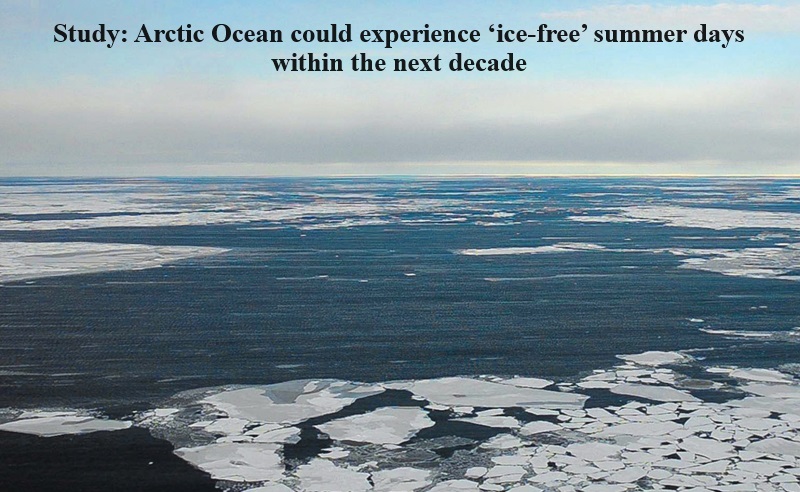
A recent study suggests that the Arctic region could experience ice-free summer days as soon as the next few years. This study, published in the journal Nature Reviews Earth & Environment, indicates that the Arctic might witness summer days devoid of sea ice within the next decade, which is earlier than previously projected.
By the year 2050, it is anticipated that the Arctic may encounter an entire month without floating ice during September, which typically marks the period of least sea ice coverage in the region. However, as per future emission scenarios, by the end of the century, the ice-free period could extend to several months annually.
It’s important to note that when researchers refer to an “ice-free Arctic,” they are not implying a complete absence of ice in the water. Rather, this term is used when the ocean has less than a million square kilometers (386,000 square miles) of ice.
Alexandra Jahn, an associate professor of atmospheric and oceanic sciences and a fellow at CU Boulder’s Institute of Arctic and Alpine Research, conducted an analysis of previous studies on sea ice projections and sea ice coverage data from computational climate models. Utilizing this data, the team was able to project the potential future changes in the Arctic region.
Their projections suggest that, under all emission scenarios, the Arctic Ocean could experience ice-free conditions for the first time in August or September between the 2020s and 2030s.
Jahn emphasized the significance of predicting the timing of the first ice-free conditions in the Arctic for effective communication of scientific findings, as these conditions will be observable in daily satellite data.
The primary driver of sea ice depletion, according to Jahn, is greenhouse gas emissions. As the ice cover diminishes, the amount of solar heat absorbed by the sea increases, exacerbating ice melt and warming the Arctic. However, the frequency of ice-free conditions will be determined by future emission levels.
Nevertheless, there is a silver lining: the Arctic Ocean exhibits resilience and can rebound swiftly when atmospheric conditions cool down. Jahn noted that unlike the ice sheet in Greenland, which took millennia to form, Arctic sea ice can potentially return within a decade if steps are taken to reverse warming by removing carbon dioxide from the atmosphere.

Post Your Comments